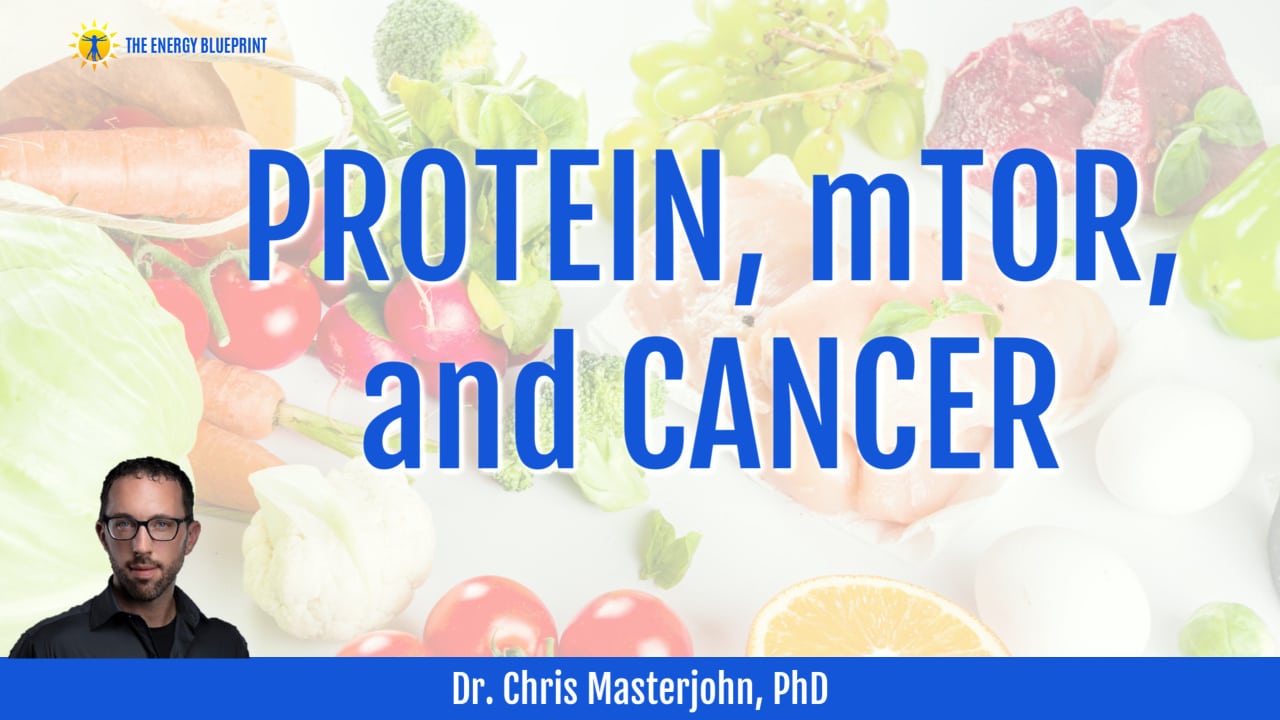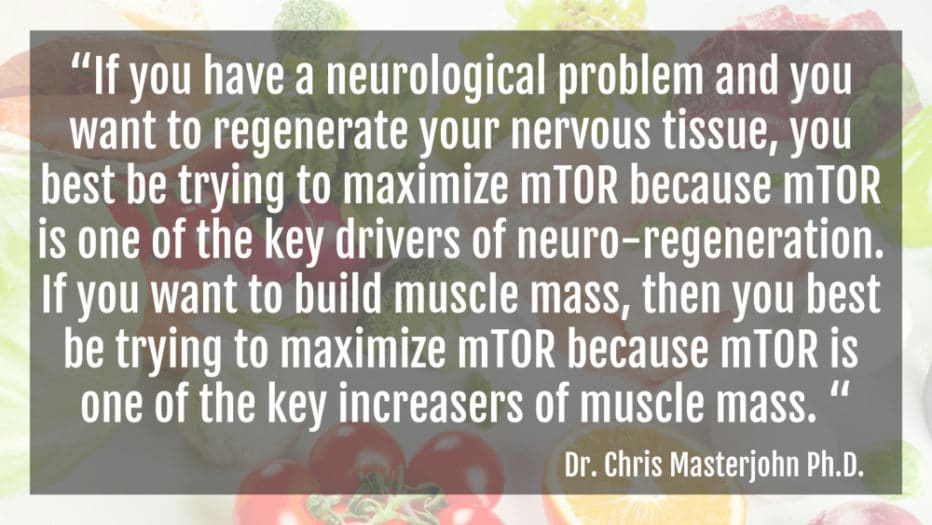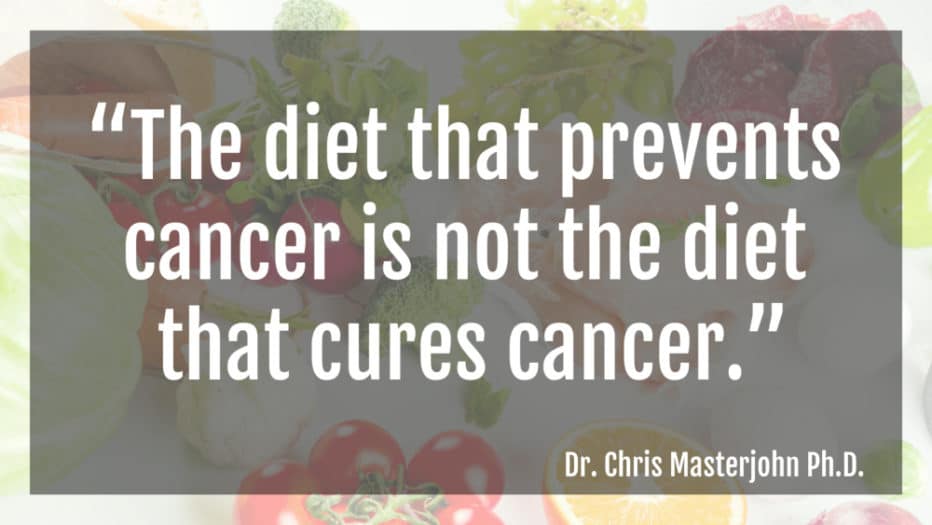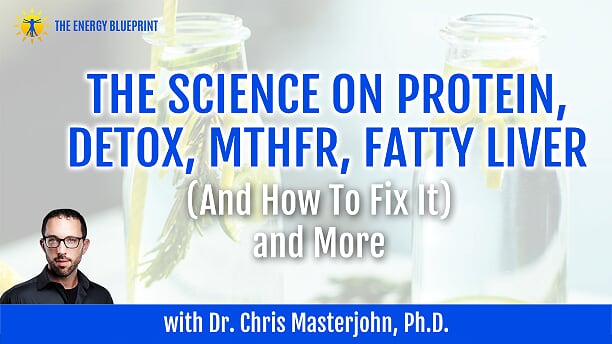 In this episode, I am speaking with Dr. Chris Masterjohn. He has a PhD in Nutritional Sciences and is widely recognized as one of the world’s top experts in nutritional biochemistry. Dr. Masterjohn will talk about the important role of proteins for your health and longevity.
In this episode, I am speaking with Dr. Chris Masterjohn. He has a PhD in Nutritional Sciences and is widely recognized as one of the world’s top experts in nutritional biochemistry. Dr. Masterjohn will talk about the important role of proteins for your health and longevity.
Watch the interview on proteins, mTOR, and cancer below
The Important Benefits of High Levels of mTOR

Many people in the health sphere advocate minimizing protein consumption, claiming that it activates mTOR, accelerates aging, increases ammonia levels, and causes cancer.
So, is mTOR all bad?
No, the truth is that mTOR is a protein that helps regulate several cell functions including division, survival, and repair.[1]Periodical spikes in high mTOR levels are crucial to rebuild tissue after it has been exposed to a stressor, as well as to regulate the body’s antioxidant production-protection cycle.
Key Point: Periodical spikes in high mTOR are essential for rebuilding tissues.
The Optimal mTOR Balance

As with most things, mTOR is neither all bad, nor all good. While it serves vital roles in keeping the body healthy, it must be kept in proper balance. The goal is to have alternate periods of high and low levels of mTOR, and to avoid sustained periods of either chronically high or low levels of mTOR.
High mTOR levels are most effective when we need to build and repair tissues, such as during feeding windows throughout the day. Low mTOR levels are most desirable when we want to break down defective tissues, such as during nightly fasting.
Key Point: The easiest way to ensure balanced mTOR levels is to consume adequate proteins during the day and fast at night.
The Science on Protein as It Relates to Cancer

Author of The ChinaStudy, T. Colin Campbell’s research on protein fueling cancer growth has shown some important yet rarely discussed findings:
- If he fed high animal protein before he fed the carcinogen, it was a powerful protector against cancer.
- If he fed high animal protein during exposure to the carcinogen, it was also a powerful protector against cancer.
- If he fed the high animal protein after he dosed the carcinogen, it promoted cancer growth.
Based on these findings, Campbell then developed a model where he fed low animal protein before and during the carcinogen dosing in order to maximize the amount of cancer that was initiated.
Key Point: High protein consumption prior to developing cancer may help prevent developing cancer, whereas high protein consumption after cancer development may promote cancer growth.
Summary
By making sure you have a 6-10 hour feeding window and making sure you increase protein consumption during the feeding window, you can balance your mTOR in a way that supports your health and prevents diseases such as cancer, sarcopenia, and osteoporosis.
When trying to prevent cancer, it is beneficial to follow a protein-rich diet. However, if you are trying to treat cancer, you may want to consider a low-protein diet to reduce mTOR levels and cancer from spreading.





